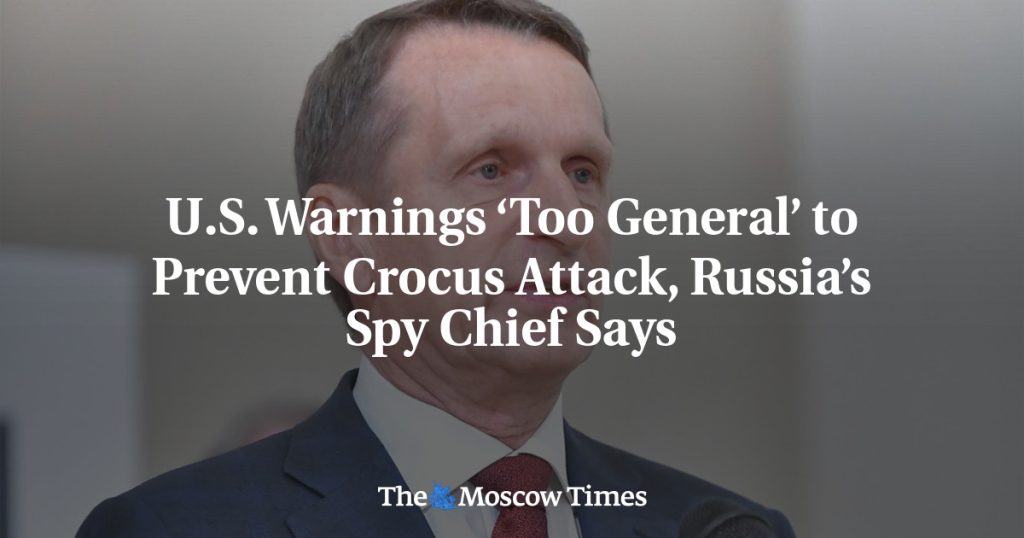Russia’s spy chief, Sergei Naryshkin, recently stated that U.S. warnings of a potential extremist attack were too vague to prevent the deadly concert hall attack near Moscow in late March. He explained that while the Federal Security Service (FSB) received information from U.S. intelligence services hinting at a possible attack, the details were too broad to identify those responsible for the tragic incident. FSB chief Alexander Bortnikov also admitted that Russia had received general information about a potential attack from the United States, highlighting a lapse in security protocol.
Despite the lack of specific warning details, top Russian officials have insinuated that Ukraine and Western countries may have played a role in the concert hall attack that resulted in the deaths of over 140 individuals. The SVR’s press service accused the Biden administration of diverting suspicion away from Ukrainian President Volodymyr Zelensky and emphasizing the involvement of ISIS-K, an affiliate of the Islamic State. While ISIS-K claimed responsibility for the attack, both Kyiv and Western nations have denied any connection to the incident, further complicating the situation.
In response to the attack and the subsequent accusations, President Vladimir Putin declared that Russia would definitively determine who orchestrated the concert hall massacre. Putin dismissed U.S. warnings as attempts to intimidate and destabilize Russian society, emphasizing the need for an objective and professional analysis of the situation. The tragic events surrounding the attack have prompted heightened tensions and raised questions about the effectiveness of security measures in place to prevent such devastating events.
The exchange of accusations between Russia, Ukraine, and Western nations has exacerbated existing geopolitical tensions and complicated the ongoing conflict in the region. The differing narratives regarding the concert hall attack have further strained diplomatic relations, with each side seeking to defend its position and refute claims of involvement in the incident. Putin’s vow to identify the masterminds behind the assault indicates a commitment to justice and accountability in the aftermath of such a catastrophic event that claimed the lives of numerous innocent individuals.
As investigations into the concert hall attack continue, the role of U.S. intelligence warnings and potential lapses in security measures will likely be scrutinized further. The complexity of the situation, including the involvement of ISIS-K and the denial of blame by political entities, adds a layer of complexity to the ongoing probe. The need for transparency, cooperation, and adherence to international norms in addressing the attack remains paramount as Russia seeks to navigate the aftermath and ensure that such tragedies are prevented in the future. Putin’s call for a thorough and unbiased examination of the situation underscores the importance of understanding the events leading up to the tragic incident and holding those responsible accountable for their actions.















